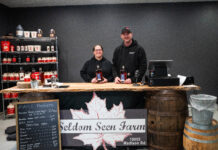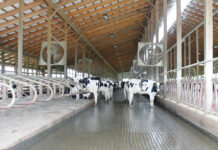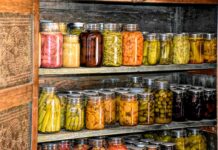Farmers depend on tuning into the world around them. Like a textbook, they read the land, plants and animals they raise for a living to determine their management choices.
Farming at its root is a business and a misstep in management may prove very costly. Misinterpreting animal health or crop productivity could make or break an operation.
The ability to recognize and correct problems before they snowball out of control is vital if a farm is going survive.
Lots of information
Today, science has ingrained itself more deeply than ever into production agriculture. Precision fertilizer, GPS, automated milking parlors, and RFID tags give producers an overwhelming amount of data on their day-to-day operations. Without a doubt, this information will prove essential in feeding an ever more populous earth with high quality food.
The people equation
But what about the human touch? With all sorts of data collection and automated operations, what may be lost when human farmers are separated from their work with numbers, graphs and computers spewing data? I’ve always been fascinated by the old-timers’ sayings, some more commonly used and some more accurate than others. “Knee high by the fourth of July,” for example, or that “the height a hornet’s nest is built will tell how much snow will fall over winter.”
These anecdotes tell me that the older generation was able to see real life trends and deduce patterns. Not exactly a world of difference when compared to what happens today with the modernity of computers, but to me, that firsthand experience makes all the difference.
During my college career, I studied biology, learning about cellular and chemical interactions, genetics and how organisms interact. I learned a lot about the mechanics of plants and animals, how they develop and grow, and even what may kill them. But how can you tell if a heifer is sick, or if your beans have slugs, before you have an insurmountable problem? How can one truly know their study subject without a personal interaction?
This is where an experienced farmer gains the upper hand — years of experience can teach a person things that computerized data collection and analysis alone never could. Farmers live with their work. It may seem strange to the average person that someone could have a relationship with a plant or animal, but in a way, all farmers do to. They depend on each other for quite a lot.
Today there are many issues making headlines in the news: algae blooms, cool summer weather, record cattle prices, and droughts. Let’s not forget what made this country great — hard-working people who were firsthand experts in their field, not computers, or machines. Let us not be blinded by the great technology we are growing ever more dependent on today and forget the lessons of the great farmers who read the land and animals to build up what we enjoy today.











